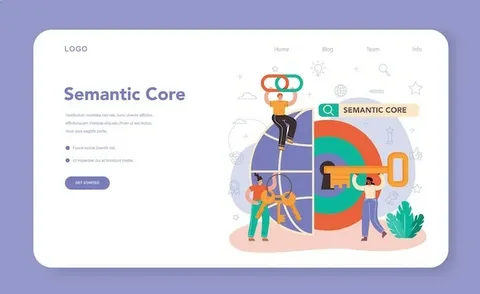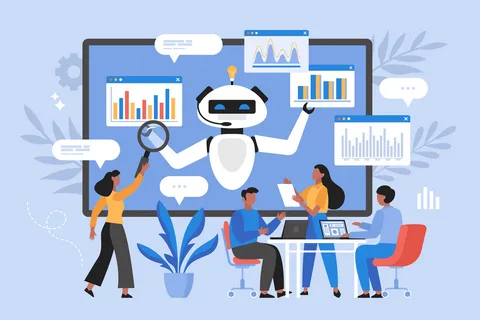Introduction
Artificial Intelligence AI is no longer a luxury reserved for tech giants it is a necessity that small businesses can no longer ignore. With the rise of affordable cloud based platforms and easy to use AI tools, small businesses can now automate repetitive tasks, personalize customer interactions, and make smarter decisions without needing large IT budgets.
In this guide, we will explore how AI is reshaping small businesses, the most affordable tools available today, and how you can leverage them to accelerate growth.
The Semantic Core
At the intersection of Artificial Intelligence and Small and Medium Sized Business lies a crucial relationship: affordability, scalability, and competitive advantage.
- Entities: Small businesses, startups, solopreneurs, freelancers, SMB owners.
- AI Categories: Automation, customer support, marketing, analytics, HR, operations.
- Growth Drivers: Efficiency, personalization, data driven decisions, customer experience.
Understanding the Business Case for AI
How AI Levels the Playing Field
Small businesses often lack the manpower, time, and budgets that larger corporations enjoy. AI bridges this gap by:
- Automating low value, repetitive tasks emails, invoicing, scheduling.
- Offering enterprise level insights at a fraction of the cost.
- Enabling 24/7 support through chatbots and virtual assistants.
The Cost Myth Why AI is Affordable Now
Thanks to Software as a Service, cloud infrastructure, and API integrations, Artificial intelligence has become subscription based, meaning small businesses only pay for what they use. Tools like Chat GPT, Jasper, HubSpot AI, and Canva AI offer pricing models that fit even the smallest budgets.
Categories of Affordable AI Tools for SMBs
AI for Marketing and Customer Engagement
- Email Marketing Automation: Mailchimp AI, Omni send, and Brevo Send in blue optimize subject lines, segment audiences, and boost open rates.
- Content Creation: Jasper AI, Write sonic, Copy ai create blog posts, ad copies, and product descriptions.
- Design Tools: Canva AI and Adobe Express allow small businesses to produce professional graphics without hiring designers.
Chatbots and Customer Support
-
Tools like Tidio, Intercom, Drift, and ManyChat help small businesses provide 24/7 responses, qualify leads, and reduce bounce rates.
AI for Sales and Lead Generation
- CRM Enhancements: HubSpot AI, Zoho CRM AI, and Salesforce Essentials offer predictive scoring and personalized outreach.
- Lead Nurturing Bots: Exceed AI and Conversica automate follow ups.
- Smart Scheduling: Calendly AI helps optimize appointment booking and reduce cancellations.
AI for Finance and Operations
- Bookkeeping Automation: QuickBooks AI, Xero, and Wave automatically categorize expenses, reconcile accounts, and generate reports.
- Inventory Management: Trade Gecko QuickBooks Commerce, Cin7, and Katana use AI to forecast demand and avoid stockouts.
- Invoicing & Payments: FreshBooks and Zoho Books streamline client billing and reminders.
AI for Human Resources
-
Recruitment: Zoho Recruit AI, BreezyHR, and Workable AI screen candidates faster.
-
Employee Engagement: Leena AI and CultureAmp help improve workplace culture.
-
Payroll Automation: Gusto AI automates compliance, payments, and benefits management.
AI for Analytics and Decision-Making
- Business Intelligence: Power BI with Copilot, Tableau AI, and Google Looker Studio provide predictive insights.
- Customer Behavior Prediction: Pecan AI and Monkey Learn analyze patterns to reduce churn.
- Website Analytics: Hotjar AI, Crazy Egg, and Google Analytics AI highlight conversion barriers.
Use Cases Across Industries
AI in Retail
- Personalized product recommendations Shopify Magic, Amazon Personalize.
- Inventory forecasting.
- AI powered loyalty programs.
AI in Food and Beverage
- Chatbots for orders and reservations.
- AI for supply chain optimization.
- Review sentiment analysis for menu improvements.
AI in Service Based Businesses
- Appointment scheduling.
- Customer communication via chatbots.
- Local SEO content creation with AI.
AI in Professional Services
- Contract analysis and document automation.
- Automated client reporting.
- AI powered research assistants.
Practical Roadmap for SMB AI Adoption
Identify Pain Points
Which tasks take the most time? Repetitive emails? Manual invoicing? Customer support delays? Start with the bottleneck.
Choose Affordable Tools
Start small. Many AI tools offer free tiers or trial versions. Example: Tidio free chatbot, Canva AI image generator, Grammarly AI writing assistant.
Integrate with Existing Systems
Most AI tools integrate with Zapier, Slack, Google Workspace, or Shopify. Smooth integration ensures adoption without extra training.
Train Your Team
AI is only as good as the people using it. Upskill your employees in prompt engineering, automation workflows, and AI driven analytics.
Monitor, Optimize, Scale
Track performance KPIs: reduced costs, time saved, higher sales, better retention. Scale into advanced AI tools as ROI grows.
Overcoming Common SMB AI Challenges
- Budget Constraints: Solution: Start with free tiers and scale gradually.
- Lack of Technical Skills: Solution: Use plug and play SaaS platforms with no code AI integrations.
- Data Privacy Concerns: Solution: Choose GDPR compliant, SOC 2 certified providers.
- Fear of Job Loss: Solution: Reframe AI as a co pilot, not a replacement freeing staff to do higher value work.
The Future of AI for Small Businesses
The future is hyper-personalization, predictive analytics, and AI driven decision making. Affordable AI will evolve into industry specific solutions from AI bookkeeping for freelancers to AI telehealth assistants for clinics.
Emerging trends:
- AI powered voice search for local businesses.
- AR/VR integration with AI for retail.
- Predictive maintenance AI for small manufacturers.
What is AI for small businesses?
AI for small businesses refers to affordable tools that automate tasks, improve customer engagement, and provide data driven insights without requiring large budgets.
Why should small businesses use AI?
AI helps save time, reduce costs, improve efficiency, and deliver personalized experiences that boost customer satisfaction and sales.
Are AI tools affordable for startups?
Yes, many AI tools like Canva, Mailchimp, and Tidio offer free or low-cost plans ideal for startups and small teams.
What are examples of AI tools for marketing?
Jasper AI, Mailchimp AI, Canva AI, and HubSpot AI help with content creation, email optimization, design, and customer engagement.
Can AI replace employees in small businesses?
No, AI is designed to support employees by handling repetitive tasks, allowing them to focus on higher value work.
How does AI improve customer service?
AI powered chatbots like Tidio or Intercom provide 24/7 instant support, answer FAQs, and route complex issues to humans.
Which AI tools help with finance?
QuickBooks AI, Xero, and FreshBooks automate bookkeeping, expense tracking, and invoice management for small businesses.
Is it hard to use AI tools without technical skills?
Not at all most AI tools are no code, user friendly, and integrate easily with platforms like Shopify, Google Workspace, or Slack.
How can AI boost sales for small businesses?
AI helps by predicting customer behavior, personalizing offers, automating follow ups, and improving lead conversions.
What is the future of AI for small businesses?
AI will continue to offer industry specific, affordable solutions with advanced personalization, predictive analytics, and automation.
Conclusion
AI is no longer optional. It is the competitive edge small businesses need in a crowded marketplace. With the right affordable tools, even the smallest company can scale smarter, serve customers better, and grow faster. The key is starting small, experimenting, and letting AI amplify what you already do best.



